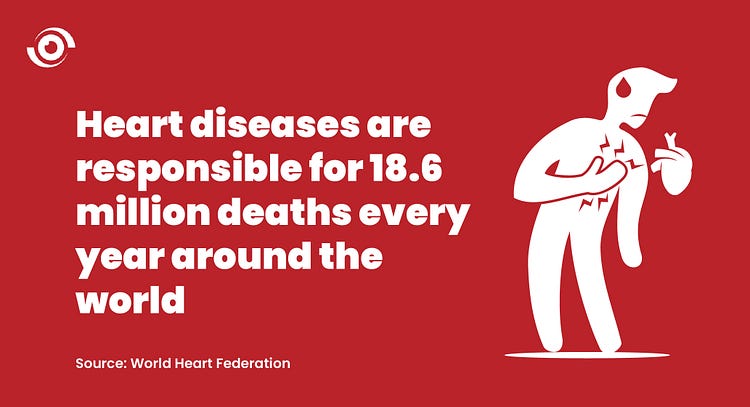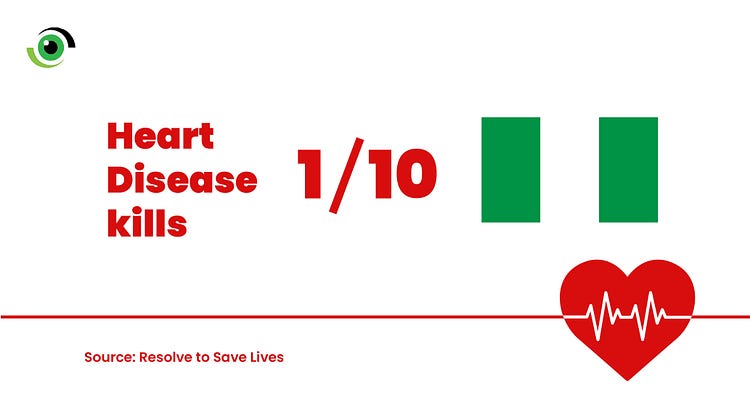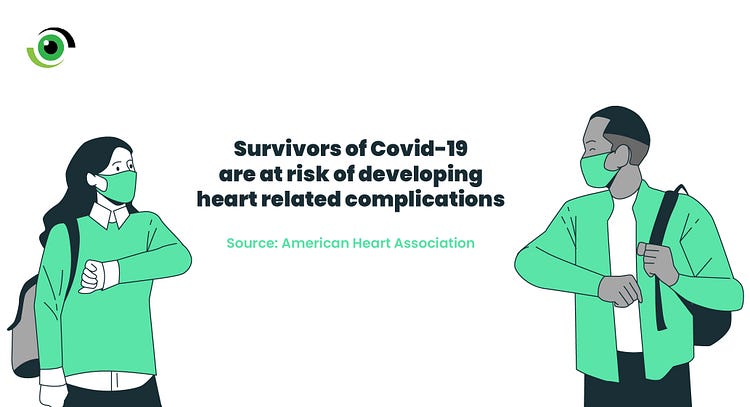The COVID-19 pandemic has been a real and present global health security threat for almost two years now. Simultaneously, African countries like Nigeria have been experiencing an entirely different silent epidemic in the form of noncommunicable diseases (NCDs). One such NCD is cardiovascular diseases, a set of heart related conditions that can lead to death and long-term complications. Together with cancer, diabetes and lung disease, cardiovascular diseases are responsible for 41 million deaths around the world yearly, 18.6 million of which are related to heart disease. In Nigeria, heart disease is responsible for 10% of all deaths, a considerably high number. For this year’s World Heart Day, we look at some of the reasons for this high cardiovascular incidence in Nigeria, and what could be done to prevent, control and manage cardiovascular diseases in the country.

Several associated risk factors
Hypertension is one of the many risk factors for heart disease. It is estimated that more than one-third of Nigerian adults have high blood pressure as a result of growing urbanisation, physical inactivity, an unhealthy diet and smoking; where an estimated 6.6% of Nigerians between the ages of 15–49 smoke. Diabetes, another NCD, is also a risk factor for cardiovascular diseases. Nigeria has a high burden of diabetes, with an estimated 5.77% of the population having the disease. Yet another worrying associated risk factor for cardiovascular diseases is the evidence that COVID-19 survivors are at greater risk of developing heart related complications. It could be said that all the major risk factors for cardiovascular diseases are high in Nigeria. These, in addition to poor health seeking behaviours and poor-quality healthcare services at all levels are the reasons behind the many deaths associated with cardiovascular diseases in the country.

What has been done to reduce risk factors?
In 2015, Nigeria signed the National Tobacco Control Act to limit the use of tobacco in the country. However, six years down the line, no real progress has been made in its implementation. Good implementation would have a positive impact on the control of tobacco smoking in the country, which would substantially reduce the burden and lower the risks of cardiovascular diseases among Nigerians. Also, the country’s 2013 NCDs strategic plan which aimed to focus on preventing and managing NCDs including cardiovascular diseases at the primary healthcare level through increased awareness campaigns and routine screening for risk factors, such as hypertension, diabetes, and obesity has not been fully implemented. Thus far, there has not been a coordinated approach towards tackling NCDs like cardiovascular diseases in Nigeria. This is a challenge for the federal, state and local governments.

Using heart to connect
This year’s World Heart Day theme ‘’Using Heart to Connect’’, aims to harness the power of digital health to improve awareness, prevention and management of CVD globally. Indeed, there is no better time than now to focus on digital health, especially for Nigeria where an array of established and upcoming digital health companies are utilising technology to provide better healthcare. Companies like Wellahealth and Doctoora are bridging the gap in leveraging technology for healthcare. While Wellahealth is enabling affordable healthcare coverage for various illnesses through their mobile application, Doctoora provides easy and affordable online and offline access to verified, quality healthcare services. Additionally, health firms like EpiAFRIC Limited are creating communities for health and tech professionals to come together to create solutions for today’s global health challenges, of which cardiovascular diseases are major.

Nigeria’s large population offers an opportunity for these companies to thrive and to explore innovative ways of providing care for chronic conditions like cardiovascular diseases. Innovations that could help people monitor their blood pressure, encourage physical activities, identify symptoms of an impending cardiac event, and alert a responsive cardiac ambulatory care, as well as a directory of consultants in the country, virtual check-up and consultation are some of the possible solutions that could be explored.
For this to be done effectively however, an enabling environment that provides all the necessary support must be provided. The entire process of setting up, running, and expanding digital health enterprises in Nigeria should be made easy and not fraught with the many issues that start-ups sometimes deal with in Nigeria. Technology experts should be supported with the tools and environment to develop their ideas. Governments and technology companies can leverage and replicate EpiAFRIC’s #HealthMeetsTech hackathon series in that regard. For example, at this year’s hackathon, one of the winning solutions was Forcardio, a mobile application designed for the management of cardiovascular diseases. It was developed by Medtech Africa.

Finally, Nigerians should be made aware of the available innovations that could help them improve awareness of cardiovascular diseases, prevent heart disease, and better manage heart conditions. These innovations should be widely accessible and affordable to Nigerians regardless of who they are, where they live or their economic status.
Today is World Heart Day. How can you #UseHeartToConnect?



In most parts of Nigeria, medicines for heart diseases are not available in the NHS (National Health Insurance Scheme).